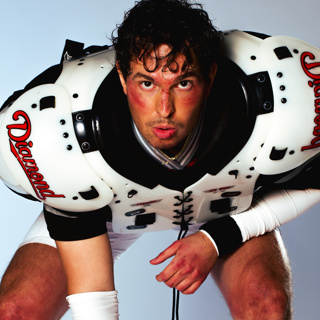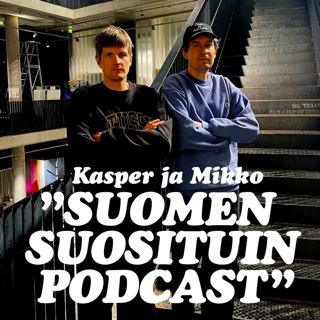
78. Fargo (1996) With Lee Wilkof
Fargo is a 1996 black comedy thriller film written, produced and directed by Joel and Ethan Coen. Frances McDormand stars as Marge Gunderson, a pregnant Minnesota police chief investigating roadside homicides that ensue after a desperate car salesman (William H. Macy) hires two criminals (Steve Buscemi and Peter Stormare) to kidnap his wife in order to extort a hefty ransom from his wealthy father-in-law (Harve Presnell). The film was an international co-production between the United States and United Kingdom. Fargo premiered at the 1996 Cannes Film Festival, where Joel Coen won the festival's Prix de la mise en scène (Best Director Award) and the film was nominated for the Palme d'Or. A critical and commercial success, Fargo received seven Academy Award nominations, including Best Picture. McDormand received the Academy Award for Best Actress and the Coens won the Academy Award for Best Original Screenplay. The film was selected in 2006 for preservation in the National Film Registry of the United States by the Library of Congress as "culturally, historically, or aesthetically significant"—one of only six films so designated in its first year of eligibility.[4] In 1998, the American Film Institute named it one of the 100 greatest American films in history. A Coen-produced FX television series of the same name, inspired by Fargo and taking place in the same fictional universe, premiered in 2014 and received critical acclaim.[5]
14 Touko 20201h 50min

77. The Big Lebowski (1998)
Jason's guests this week on the pod are Micheal Chernus and Emily Simoness, a married couple who join him to take a very deep dive into all the wonderful, like, greatness, man, of 'The Big Lebowski'. Michael's a Julliard-trained stage, TV, and film actor currently appearing on TV as speechwriter Ken Rosey opposite Edie Falco on the CBS series 'Tommy'. You might have also seen him as Piper's brother Cal Chapman on 'Orange Is The New Black' or playing Congressman Edward Tavner in Amazon's 'Patriot'. Michael's movie roles include portraying The Tinkerer, the original McGyver, in Marvel's Spider-Man: Homecoming; playing Tom Hanks' first mate Shane Murphy in the excellent Paul Greengrass film 'Captain Phillips'; and appearing opposite Will Smith in 2012's 'Men In Black 3". The other half of this power-couple, Emily, is the founder and executive Director of SPACE on Ryder Farm, a non-profit artistic residency program and organic farm located on the grounds of a 225-year-old family homestead in Putnam County, New York. But outside their professional accomplishments, they're just wonderful midwestern good people, whose self-effacing humor and innate smarts you'll hear on display in the podcast as we discuss the Coen Brother's 'The Big Lebowski'. ABOUT THE MOVIE: The Big Lebowski (/ləˈbaʊski/) is a 1998 crime comedy film written, produced, and directed by Joel and Ethan Coen. It stars Jeff Bridges as Jeffrey "The Dude" Lebowski, a Los Angeles slacker and avid bowler. He is assaulted as a result of mistaken identity, after which The Dude learns that a millionaire (also named Jeffrey Lebowski) was the intended victim. The millionaire Lebowski's trophy wife is kidnapped, and he commissions The Dude to deliver the ransom to secure her release; the plan goes awry when the Dude's friend Walter Sobchak (John Goodman) schemes to keep the ransom money. Julianne Moore, Steve Buscemi, David Huddleston, John Turturro and Philip Seymour Hoffman also appear, in supporting roles. The film is loosely inspired by the work of Raymond Chandler. Joel Coen stated, "We wanted to do a Chandler kind of story – how it moves episodically, and deals with the characters trying to unravel a mystery, as well as having a hopelessly complex plot that's ultimately unimportant."[4] The original score was composed by Carter Burwell, a longtime collaborator of the Coen brothers. The Big Lebowski was a disappointment at the U.S. box office and received mixed reviews at the time of its release. Over time, reviews have become largely positive, and the film has become a cult favorite,[5] noted for its eccentric characters, comedic dream sequences, idiosyncratic dialogue, and eclectic soundtrack.[6] In 2014, the film was selected for preservation in the National Film Registry by the Library of Congress, being deemed "culturally, historically, or aesthetically significant".[7][8] A spin-off based on John Turturro's character, titled The Jesus Rolls, was released in 2019 with Turturro also acting as writer and director. Cast Jeff Bridges as Jeffrey "The Dude" Lebowski. Bridges had heard or was told by the Coen brothers that they had written a screenplay for him. John Goodman as Walter Sobchak; a Vietnam veteran and bowling partner and friend of "The Dude." Walter was based, in part, on screenwriter and director John Milius. Julianne Moore as Maude Lebowski; Jeffrey "The Big" Lebowski's daughter, a feminist and an avant-garde artist. Steve Buscemi as Theodore Donald "Donny" Kerabatsos; a bowling partner and friend of "The Dude." Walter's repeated response, "Shut the fuck up, Donny!" is a reference to Fargo, in which Buscemi's character was constantly talking and interrupting conversations when he is not paying attention to the story. David Huddleston as Jeffrey "The Big" Lebowski; a millionaire philanthropist for whom "The Dude" is mistaken. Philip Seymour Hoffman as Brandt; Jeffrey "The Big" Lebowski's executive assistant Tara Reid as Bunny Lebowski; Jeffrey "The Big" Lebowski's blonde 20s-something trophy wife and former porn video performer (“Log Jammin’”) for Jackie Treehorn Productions. According to Reid, Charlize Theron also tried out for the role. Philip Moon as Woo; a Jackie Treehorn thug Mark Pellegrino as the Blond Treehorn thug Peter Stormare, Torsten Voges, and Flea as Uli Kunkel/Karl Hungus, Franz, and Kieffer, the German nihilists; Uli originated on the set of Fargo between Ethan Coen and Stormare, who often spoke in a mock German accent. Jimmie Dale Gilmore as Smokey; a hippie bowler in the league whom Walter threatens at gunpoint over an attempt to mark his frame an eight despite letting his foot move over the alley line Jack Kehler as Marty; The Dude's landlord, who is also a performance artist John Turturro as Jesus Quintana. The Coen brothers let Turturro come up with a lot of his own ideas for the character, like towel-shining the bowling ball and the scene where he dances backward from his bowling alley line, which he says was inspired by Muhammad Ali. David Thewlis as Knox Harrington, an avant-garde videographer-friend of Maude Lebowski Sam Elliott as The Stranger, a smooth-talking urban cowboy who also serves as the narrator of the film Ben Gazzara as big-time porn video producer Jackie Treehorn, to whom Bunny Lebowski owes money Jon Polito as Da Fino, a private dick who mistakes the Dude for a "brother shamus", hired by Bunny's family to return her to them Leon Russom as the Malibu police chief Aimee Mann as Nihilist Woman/Franz's Girlfriend who donates her amputated green nail-polished little toe (proof of Bunny Lebowski's kidnapping) Lu Elrod coffee shop waitress SOUNDTRACK The original score was composed by Carter Burwell, a veteran of all the Coen Brothers' films. While the Coens were writing the screenplay they had Kenny Rogers' "Just Dropped In (to See What Condition My Condition Was in)", the Gipsy Kings' cover of "Hotel California", and several Creedence Clearwater Revival songs in mind.[25] They asked T-Bone Burnett (who would later work with the Coens on O Brother, Where Art Thou? and Inside Llewyn Davis) to pick songs for the soundtrack of the film. They knew that they wanted different genres of music from different times but, as Joel remembers, "T-Bone even came up with some far-out Henry Mancini and Yma Sumac."[26] Burnett was able to secure songs by Kenny Rogers and the Gipsy Kings and also added tracks by Captain Beefheart, Moondog and Bob Dylan's "The Man in Me".[25] However, he had a tough time securing the rights to Townes Van Zandt's cover of the Rolling Stones' "Dead Flowers", which plays over the film's closing credits. Former Stones manager Allen Klein owned the rights to the song and wanted $150,000 for it. Burnett convinced Klein to watch an early cut of the film and remembers, "It got to the part where the Dude says, 'I hate the fuckin' Eagles, man!' Klein stands up and says, 'That's it, you can have the song!' That was beautiful."[25][27] Burnett was going to be credited on the film as "Music Supervisor", but asked his credit to be "Music Archivist" because he "hated the notion of being a supervisor; I wouldn't want anyone to think of me as management".[26] For Joel, "the original music, as with other elements of the movie, had to echo the retro sounds of the Sixties and early Seventies".[16]:156 Music defines each character. For example, "Tumbling Tumbleweeds" by Bob Nolan was chosen for the Stranger at the time the Coens wrote the screenplay, as was "Lujon" by Henry Mancini for Jackie Treehorn. "The German nihilists are accompanied by techno-pop and Jeff Bridges by Creedence. So there's a musical signature for each of them", remarked Ethan in an interview.[16]:156 The character Uli Kunkel was in the German electronic band Autobahn, an homage to the band Kraftwerk. The album cover of their record Nagelbett (bed of nails) is a parody of the Kraftwerk album cover for The Man-Machine and the group name Autobahn shares the name of a Kraftwerk song and album. In the lyrics the phrase "We believe in nothing" is repeated with electronic distortion. This is a reference to Autobahn's nihilism in the film.[28]
30 Huhti 20201h 53min

76. The Princess Bride (1987)
The Princess Bride is a 1987 American fantasy adventure comedy film directed and co-produced by Rob Reiner, starring Cary Elwes, Robin Wright, Mandy Patinkin, Chris Sarandon, Wallace Shawn, André the Giant, and Christopher Guest. Adapted by William Goldman from his 1973 novel The Princess Bride, it tells the story of a farmhand named Westley, accompanied by companions befriended along the way, who must rescue his true love Princess Buttercup from the odious Prince Humperdinck. The film essentially preserves the novel's narrative style by presenting the story as a book being read by a grandfather (Peter Falk) to his sick grandson (Fred Savage).
23 Huhti 20201h 20min

75. Rosemary's Baby (1968)
Rosemary's Baby is a 1968 American horror film written and directed by Roman Polanski, based on the novel Rosemary's Baby by Ira Levin. The cast features Mia Farrow, John Cassavetes, Ruth Gordon, Sidney Blackmer, Maurice Evans, Ralph Bellamy, Angela Dorian, Clay Tanner, and, in his feature film debut, Charles Grodin. The film chronicles the story of a pregnant woman who suspects that an evil cult wants to take her baby for use in their rituals. Rosemary's Baby deals with themes related to paranoia, women's liberation, Christianity (Catholicism), and the occult.[3] The film earned almost universal acclaim from film critics and won numerous nominations and awards. In 2014, the film was selected for preservation in the National Film Registry by the Library of Congress, being deemed "culturally, historically, or aesthetically significant." Script In Rosemary's Baby: A Retrospective, a featurette on the DVD release of the film, screenwriter/director Roman Polanski, Paramount Pictures executive Robert Evans, and production designer Richard Sylbert reminisce at length about the production. Evans recalled William Castle brought him the galley proofs of the book and asked him to purchase the film rights even before Random House published the book. The studio head recognized the commercial potential of the project and agreed with the stipulation that Castle, who had a reputation for low-budget horror films, could produce but not direct the film adaptation. He makes a cameo appearance as the man at the phone booth waiting for Mia Farrow to finish her call. Evans admired Polanski's European films and hoped he could convince him to make his American debut with Rosemary's Baby. He knew the director was a ski buff who was anxious to make a film with the sport as its basis, so he sent him the script for Downhill Racer along with the galleys for Rosemary. Polanski read the latter book non-stop through the night and called Evans the following morning to tell him he thought Rosemary was the more interesting project, and would like the opportunity to write as well as direct it. The script was modeled very closely on the original novel and incorporated large sections of the novel's dialogue and details. Nearly every line of dialogue was taken from the novel's text. Author Ira Levin claimed that during a scene in which Guy mentions wanting to buy a particular shirt advertised in The New Yorker, Polanski was unable to find the specific issue with the shirt advertised and phoned Levin for help. Levin, who had assumed while writing that any given issue of The New Yorker would contain an ad for men's shirts, admitted that he had made it up. Cast Mia Farrow as Rosemary Woodhouse John Cassavetes as Guy Woodhouse Ruth Gordon as Minnie Castevet Sidney Blackmer as Roman Castevet/Steven Marcato Maurice Evans as Hutch Ralph Bellamy as Dr. Abraham Sapirstein Charles Grodin as Dr. Hill Patsy Kelly as Laura-Louise Angela Dorian as Terry Gionoffrio Elisha Cook as Mr. Nicklas Emmaline Henry as Elise Dunstan Hanna Landy as Grace Cardiff Philip Leeds as Dr. Shand Hope Summers as Mrs. Gilmore D'Urville Martin as Diego Marianne Gordon as Rosemary's Girlfriend Wendy Wagner as Rosemary's Girlfriend Fritzi Jane Courtney as woman at party Academy Awards Academy Award for Best Supporting Actress (Ruth Gordon, winner) Academy Award for Best Adapted Screenplay (nominee) Golden Globe Awards Golden Globe Award for Best Supporting Actress - Motion Picture (Gordon, winner) Golden Globe Award for Best Actress - Motion Picture Drama (Farrow, nominee) Golden Globe Award for Best Screenplay (nominee) Golden Globe Award for Best Original Score (nominee) Other awards BAFTA Award for Best Actress in a Leading Role (Mia Farrow, nominee) Directors Guild of America Award for Outstanding Directorial Achievement in Motion Pictures (nominee) Writers Guild of America Award for Best Written American Drama (nominee) David di Donatello Award for Best Foreign Actress (Mia Farrow, winner) David di Donatello Award for Best Foreign Director (winner) Edgar Allan Poe Award for Best Motion Picture Screenplay (nominee) French Syndicate of Cinema Critics Award for Best Foreign Film (winner) Kansas City Film Critics Circle Award for Best Supporting Actor (Sidney Blackmer, winner) Kansas City Film Critics Circle Award for Best Supporting Actress (Gordon, winner)
16 Huhti 20201h 25min

74. Network (1976)
Network is a 1976 American satirical drama film written by Paddy Chayefsky and directed by Sidney Lumet, about a fictional television network, UBS, and its struggle with poor ratings. The film stars Faye Dunaway, William Holden, Peter Finch and Robert Duvall and features Wesley Addy, Ned Beatty and Beatrice Straight. The film won four Academy Awards, in the categories of Best Actor (Finch), Best Actress (Dunaway), Best Supporting Actress (Straight) and Best Original Screenplay (Chayefsky). In 2000, the film was selected for preservation in the United States National Film Registry by the Library of Congress as being "culturally, historically, or aesthetically significant". In 2002, it was inducted into the Producers Guild of America Hall of Fame as a film that has "set an enduring standard for American entertainment".[3] In 2005, the two Writers Guilds of America voted Chayefsky's script one of the 10 greatest screenplays in the history of cinema.[4][a] In 2007, the film was 64th among the 100 greatest American films as chosen by the American Film Institute, a ranking slightly higher than the one AFI had given it ten years earlier. Faye Dunaway as Diana Christensen William Holden as Max Schumacher Peter Finch as Howard Beale Robert Duvall as Frank Hackett Wesley Addy as Nelson Chaney Ned Beatty as Arthur Jensen Beatrice Straight as Louise Schumacher Jordan Charney as Harry Hunter William Prince as Edward Ruddy Lane Smith as Robert McDonough Marlene Warfield as Laureen Hobbs Conchata Ferrell as Barbara Schlesinger Carolyn Krigbaum as Max's secretary Arthur Burghardt as the Great Ahmet Khan Cindy Grover as Caroline Schumacher Darryl Hickman as Bill Herron Lee Richardson as the Narrator (voice) Lance Henriksen as Network lawyer (uncredited) Network came only two years after the first on-screen suicide in television history, of television news reporter Christine Chubbuck in Sarasota, Florida.[6][dead link] The anchorwoman was suffering from depression and loneliness, was often emotionally distant from her co-workers, and shot herself on camera as stunned viewers watched on July 15, 1974. Chayefsky used the idea of a live death as his film's focal point, saying later in an interview, "Television will do anything for a rating ... anything!" However, Dave Itzkoff's book Mad as Hell: The Making of Network and the Fateful Vision of the Angriest Man in Movies disputes that Chayefsky was inspired by the Chubbock case, asserting that Chayefsky actually began writing Network months before Chubbuck's death and already planned for Howard Beale to vow to kill himself on air, and that Chubbuck's suicide was simply an eerie parallel.[7] Sidney Lumet also confirmed that the character of Howard Beale was never based on any real life person.[8] Still, the Chubbuck case is mentioned in Chayefsky's screenplay.[citation needed] Before beginning his screenplay, Chayefsky visited network TV offices. Sitting in on meetings at CBS and NBC, he noted "the politics, the power struggles, the obsession with ratings."[9] He was also surprised to learn that television executives did not watch much television. "The programs they put on 'had to' be bad," he said, "had to be something they wouldn't watch. Imagine having to work like that all your life."[10] According to Dave Itzkoff, what Cheyefsky saw while writing the screenplay during the midst of Watergate and the Vietnam war was all the anger of America being broadcast in everything from sitcoms to news reports. He concluded that Americans "don't want jolly, happy family type shows like Eye Witness News" ... "the American people are angry and want angry shows."[11] When he began writing his script he had intended on a comedy, but instead poured his frustration at the broadcasts being shown on television, which he described as "an indestructible and terrifying giant that is stronger than the government" — into the screenplay. It became a "dark satire about an unstable news anchor and a broadcasting company and a viewing public all too happy to follow him over the brink of sanity."[11] The character of network executive Diana Christiansen was based on NBC daytime television programming executive Lin Bolen,[12] which Bolen disputed.[13] Chayefsky and producer Howard Gottfried had just come off a lawsuit against United Artists, challenging the studio's right to lease their previous film, The Hospital, to ABC in a package with a less successful film. Despite this recent lawsuit, Chayefsky and Gottfried signed a deal with UA to finance Network, until UA found the subject matter too controversial and backed out. Undeterred, Chayefsky and Gottfried shopped the script around to other studios, and eventually found an interested party in Metro-Goldwyn-Mayer. Soon afterward, United Artists reversed itself and looked to co-finance the film with MGM, since the latter had an ongoing distribution arrangement with UA in North America. Since MGM agreed to let UA back on board, the former (through United Artists as per the arrangement) controlled North American/Caribbean rights, with UA opting for overseas distribution.
9 Huhti 20201h 54min

73. The Bad News Bears (1976)
The Bad News Bears is a 1976 American sports comedy film directed by Michael Ritchie and written by Bill Lancaster. It stars Walter Matthau and Tatum O'Neal. The film was followed by two sequels, The Bad News Bears in Breaking Training in 1977 and The Bad News Bears Go to Japan in 1978, a short-lived 1979–80 CBS television series, and a 2005 remake. Notable was the score by Jerry Fielding, which is an adaptation of the principal themes of Bizet's opera Carmen. PODCAST NOTES: Bernie Kaminski is my guest (00:02), Bernie's amazing paper mache pop-cultural artwork (follow @berniekaminski for more) (2:00), Jason and Bernie's contrasting Little League experiences (7:00), Happy Days vs Media All Stars celebrity softball game excerpt (9:00), Matthau's incredible and heartbreaking dugout argument scene with Tatum O'Neal (10:30), Alternative casting: Warren Beatty and Steve McQueen (11:00), Walter Matthau 'quitting' scene (13:00), Matthau in 'The Taking of Pelham 123' (13:30), Bill Lancaster, screenwriter of 'Bad News Bears' and 'The Thing' (14:00), introduction of Kelly Leak scene 'Thanks, Mister' (17:00), Matthau's scene in the dugout where he's taking it too seriously (19:00), kids temperment as reflected in their jerky sideline parents at sporting events (22:00), Bernie's surprisingly impressive and underrated Little League career, including his score book from 1976 (24:00), Olgivie's baseball patch jacket in The Bad News Bears (27:30), 'Alice Doesn't Live Here Anymore' scene with Alfred Lutter as Tommy (28:00), 'Breaking Away' with Jackie Earle Haley (34:30), Jackie Earle Haley in 'Little Children' (37:30), William Devane in 'The Bad News Bears: Breaking Training' and the uselessness of the sequels (39:00), great scene between Buttermaker and Ahmad Abdul Rahim in the tree after the loss to the Yankees (42:30), Beer can collecting in 1970s childhood (46:30), Bernie's Latch-Key TV selections.
26 Maalis 20201h 14min

72. Dirty Dancing (1987)
Dirty Dancing is a 1987 American romantic drama dance film written by Eleanor Bergstein, produced by Linda Gottlieb, and directed by Emile Ardolino. It stars Jennifer Grey as Frances "Baby" Houseman, a young woman who falls in love with dance instructor Johnny Castle (Patrick Swayze) at a holiday resort. The film was based on screenwriter Eleanor Bergstein's own childhood. She originally wrote a screenplay for the Michael Douglas film It's My Turn, but ultimately ended up conceiving a story for a film which became Dirty Dancing. She finished the script in 1985, but management changes at MGM put the film in development hell. The production company was changed to Vestron Pictures with Emile Ardolino as director and Linda Gottlieb as producer. Filming took place in Lake Lure, North Carolina, and Mountain Lake, Virginia, with the film's score composed by John Morris and dance choreography by Kenny Ortega. Dirty Dancing premiered at the 1987 Cannes Film Festival on May 12, 1987, and was released on August 21, 1987, in the United States, earning over $214 million worldwide.[2] It was the first film to sell more than a million copies for home video,[2] and its soundtrack created by Jimmy Ienner generating two multi-platinum albums and multiple singles, including "(I've Had) The Time of My Life", which won both the Golden Globe and Academy Award for Best Original Song, and a Grammy Award for best duet.[3] The film's popularity led to a 2004 prequel, Dirty Dancing: Havana Nights, and a stage version which has had sellout performances in Australia, Europe, and North America. A made-for-TV remake was also released in 2017.[4]
19 Maalis 20201h 31min

71. Phantasm (1979)
Phantasm is a 1979 American science fantasy horror film directed, written, photographed, and edited by Don Coscarelli. The first film in the Phantasm franchise, it introduces the Tall Man (Angus Scrimm), a supernatural and malevolent undertaker who turns the dead of Earth into dwarf zombies to be sent to his planet and used as slaves. He is opposed by a young boy, Mike (Michael Baldwin), who tries to convince his older brother Jody (Bill Thornbury) and family friend Reggie (Reggie Bannister) of the threat. Phantasm was a locally financed independent film; the cast and crew were mostly amateurs and aspiring professionals. Though initial reviews were mixed in regards to the dreamlike, surreal narrative and imagery, later reception was more positive and the film became a cult classic. It has appeared on several critics' lists of best horror films, and it has been cited as an influence on later horror series. It was followed by four sequels: Phantasm II (1988), Phantasm III: Lord of the Dead (1994), Phantasm IV: Oblivion (1998) and Phantasm: Ravager (2016).
12 Maalis 20201h 7min





















